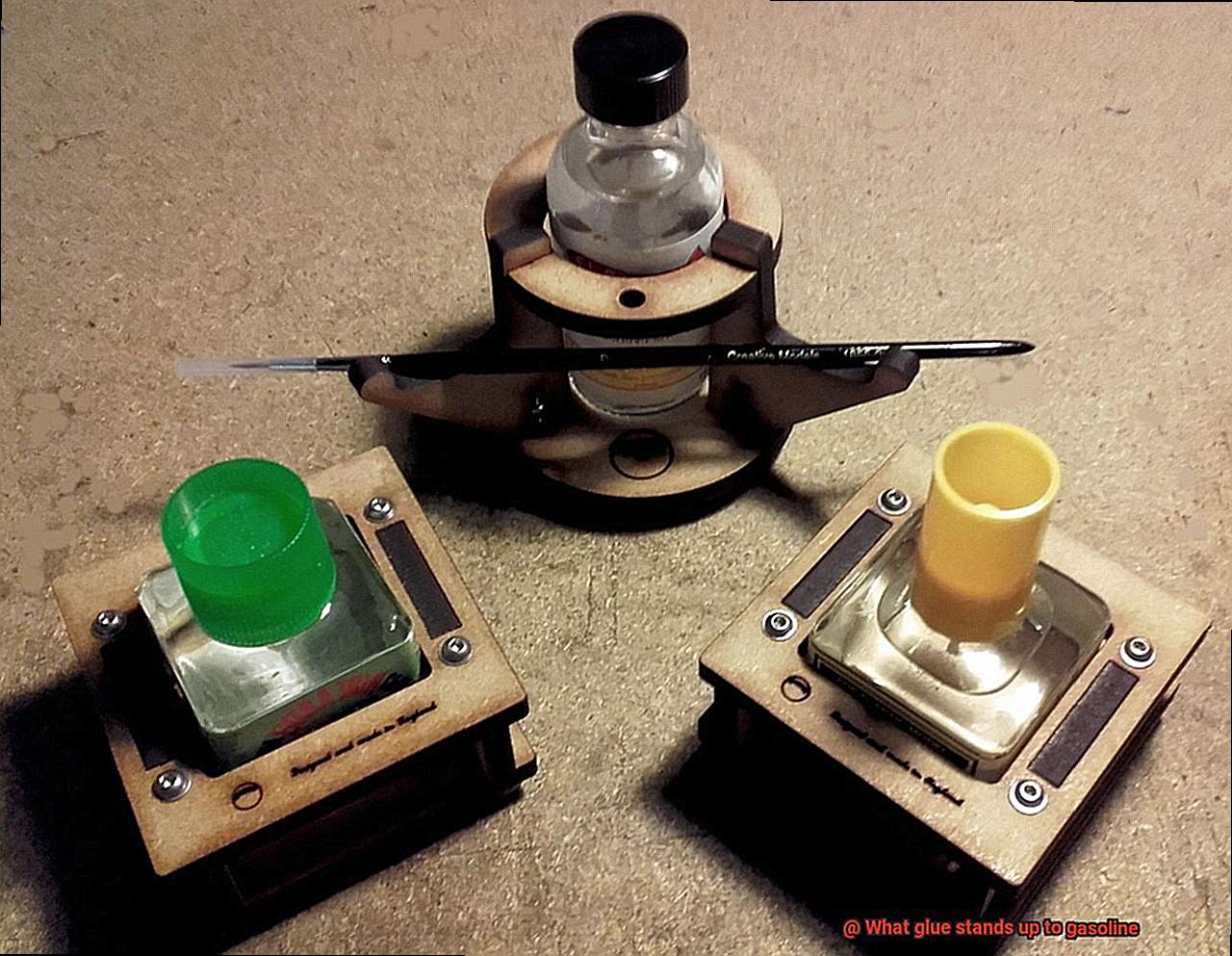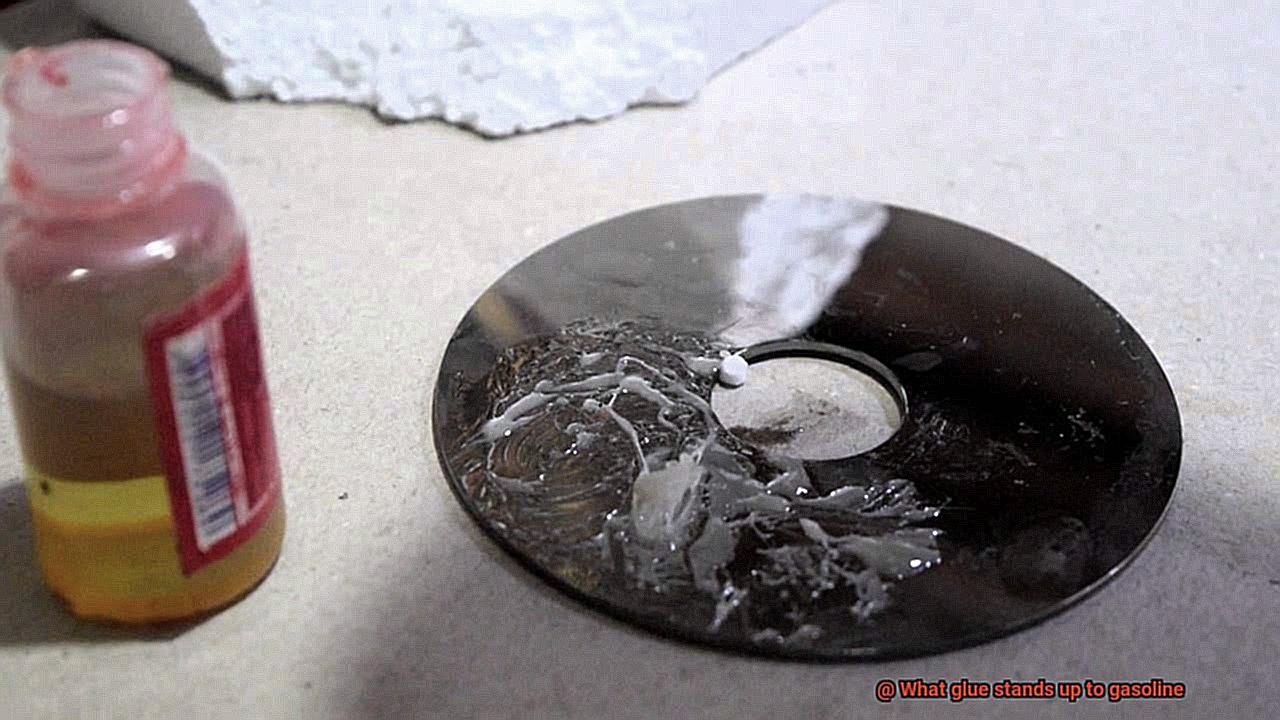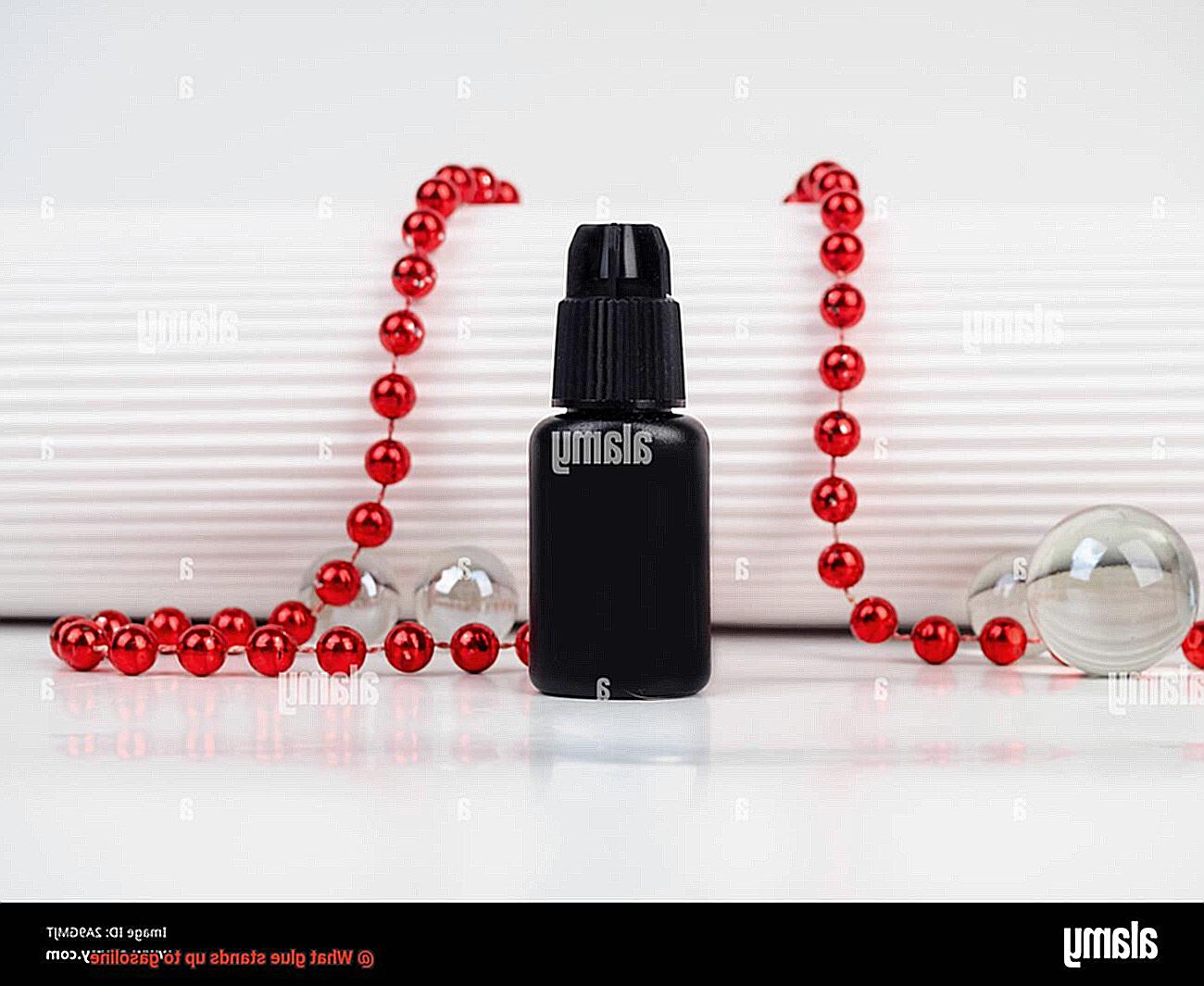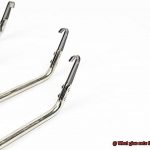Picture this: you’re knee-deep in a project that demands an unbreakable bond, but there’s a catch – it needs to withstand the relentless assault of gasoline. Ordinary glues crumble under its volatile wrath, leaving you with nothing but structural failure and safety compromises. But fear not. There exists a breed of glue that defies the odds, standing tall against gasoline’s destructive nature.
In this blog post, we embark on a thrilling expedition through the realm of glues that can take on gasoline head-on. We’ll unravel their secrets, explore their unique characteristics, and unveil why they’re the ultimate choice for such audacious endeavors. Armed with this knowledge, you’ll be equipped to tackle automotive repairs, fuel container assembly, or any other project that calls for an unwavering bond in gasoline’s presence.
So buckle up as we dive into the captivating world of gasoline-resistant glues. Prepare to discover the glue that will become your steadfast ally in conquering even the most challenging bonding tasks. Let’s get started.

What is Gasoline?
Contents
Gasoline, a highly volatile and flammable liquid, is the lifeblood of modern transportation. Derived from crude oil through the refining process of distillation, gasoline is a complex mixture of hydrocarbon compounds that provide the energy needed to power engines. In this article, we will delve into the properties of gasoline, its chemical makeup, and its vital role in our everyday lives.

Chemical Composition:
Gasoline is primarily composed of hydrocarbons, which are molecules consisting of carbon and hydrogen atoms. The specific composition can vary based on factors such as the source of crude oil and the refining methods used. Typically, gasoline contains hydrocarbons with 8 to 12 carbon atoms per molecule. These hydrocarbons can be categorized into three main groups:
- Paraffins: Straight-chain hydrocarbons that offer excellent combustion properties and high energy content. Paraffins contribute to the stability and energy efficiency of gasoline.
- Olefins: Unsaturated hydrocarbons containing at least one double bond between adjacent carbon atoms. While olefins enhance the octane rating of gasoline, they can also increase its volatility.
- Aromatics: Cyclic hydrocarbons like benzene, toluene, and xylene that impact both the octane rating and volatility of gasoline. However, excessive aromatic content can lead to undesirable emissions when burned in engines.
Additives and Refining:
To optimize the quality of gasoline, various additives are incorporated during the refining process. These additives serve multiple purposes, including enhancing performance, reducing emissions, and improving fuel stability. Common additives include detergents to clean fuel injectors and intake valves, corrosion inhibitors to protect engine components, and antioxidants to prevent oxidation.
Combustion and Energy Release:
When ignited in an engine’s combustion chamber, gasoline undergoes controlled explosions that release energy in the form of heat and pressure. This energy drives the pistons in an internal combustion engine, generating mechanical power that propels vehicles forward. Gasoline’s combustibility and high energy content make it an efficient fuel for powering transportation.
Environmental Impact:
While gasoline is indispensable for our transportation needs, it also poses environmental challenges. The combustion of gasoline releases carbon dioxide (CO2), a greenhouse gas that contributes to climate change. Incomplete combustion can result in the formation of harmful pollutants such as carbon monoxide (CO), nitrogen oxides (NOx), and volatile organic compounds (VOCs). To mitigate these environmental concerns, there is a growing emphasis on developing alternative fuels and improving engine efficiency.
Types of Adhesives Resistant to Gasoline
Gasoline is a potent liquid that can corrode and damage many materials, including adhesives. However, there are specialized types of adhesives that can withstand the harsh effects of gasoline. In this essay, we will explore the different types of adhesives that are resistant to gasoline and how they can be utilized in various applications.
Epoxy Glue: The Mighty Protector
Epoxy glue acts as a resilient shield against gasoline. Comprised of two components, a resin and a hardener, when mixed together, it forms a robust and durable bond. Epoxy glue finds its common usage in automotive applications where exposure to gasoline is expected, such as bonding fuel tanks or fuel lines. It exhibits exceptional resistance to the corrosive chemicals present in gasoline without deteriorating or losing its adhesive properties.
Polyurethane Glue: Flexibility and Durability
Polyurethane glue is another valiant contender in the battle against gasoline. This adhesive forms a strong bond by reacting with moisture in the air. Renowned for its flexibility and durability, polyurethane glue is an ideal choice for applications where movement or vibrations are anticipated. It boasts excellent resistance to gasoline, making it a popular choice in the automotive and transportation industries.
Silicone Adhesive: The Temperature Warrior
Silicone adhesive stands tall as an unwavering champion when it comes to resisting gasoline. It showcases remarkable temperature resistance and can maintain its adhesive properties even at high temperatures. Silicone adhesives are also highly resistant to chemicals, including gasoline. They find wide usage in automotive applications such as sealing gaskets or bonding components that come into contact with gasoline.
Specialty Adhesives: Designed for the Toughest Challenges
In addition to epoxy, polyurethane, and silicone adhesives, specialty adhesives are available that are specifically formulated to be resistant to gasoline. These adhesives find widespread usage in industries such as automotive, aerospace, and marine, where exposure to gasoline is common. They possess additional features such as high temperature resistance or fast curing times to meet the demands of challenging applications.
Epoxy Glue
In the world of automotive and industrial applications, finding a reliable adhesive that can withstand the toughest challenges is crucial. Look no further than epoxy glue, the superhero adhesive that combines unparalleled strength, durability, and chemical resistance. In this article, we will explore why epoxy glue is the go-to choice for professionals in these industries.
Unyielding Strength and Durability:
The secret weapon of epoxy glue lies in its two-component composition. The resin and hardener join forces to create a bond that is virtually unbreakable. This incredible strength allows epoxy glue to securely bond various materials, including metals, plastics, ceramics, and glass. Whether you’re repairing a cracked engine block or reinforcing structural components, epoxy glue has got your back.
Chemical Resistance:
One standout feature of epoxy glue is its remarkable resistance to gasoline and petroleum-based solvents. Unlike other glues that crumble under the corrosive effects of gasoline, epoxy glue stands tall, maintaining its strength and integrity. This makes it an ideal choice for automotive repairs, fuel system maintenance, and any application where the adhesive will come into contact with gasoline.
Specific Applications:
Epoxy glue’s versatility knows no bounds. It excels in a wide range of automotive and industrial applications, including:
- Bonding metal parts: Epoxy glue provides a strong bond for repairing engine parts, exhaust systems, and transmission housings.
- Automotive body repairs: From fixing cracked bumpers to securing loose trim pieces, epoxy glue ensures durable and long-lasting repairs.
- Fuel system maintenance: Epoxy glue plays a crucial role in sealing fuel tanks, preventing leaks, and ensuring the safe transportation of gasoline.
- Industrial equipment repairs: Epoxy glue is used to reinforce industrial machinery, repair conveyor belts, and bond composite materials.
Advantages over Other Glues:
Compared to other glues, epoxy glue offers several advantages that make it stand out:
- Chemical resistance: Epoxy glue’s ability to resist gasoline and other petroleum-based solvents sets it apart from the competition.
- Longevity: Epoxy glue forms a highly durable bond that is resistant to wear and tear, ensuring your repairs last for years to come.
- Versatility: With the ability to bond a wide range of materials, epoxy glue is a versatile choice for various applications.
- Customizability: Different formulations and additives allow for customization of epoxy glue to suit specific needs, such as increased flexibility or faster curing time.
Polyurethane Glue
Its unique properties make it particularly suitable for projects in the automotive and construction industries, where exposure to gasoline and other harsh conditions is common.
So, what sets polyurethane glue apart from other adhesives? Let’s delve deeper into its features:
- Super strength: When it comes to bonding capabilities, polyurethane glue is like a superhero team-up of adhesives. No matter the material – wood, metal, plastic, or even stone – this glue creates a bond that can withstand the toughest conditions. So, whether you’re fixing a broken car part or constructing a sturdy wooden structure, polyurethane glue has got your back.
- Air-curing magic: Unlike some other glues that require heat or UV light to cure, polyurethane glue works its magic with moisture in the air. This means you can use it indoors or outdoors without any worries. Plus, it gives you ample time to position and align your materials before it sets. No need to rush.
- Gasoline resistance: Here comes the real superpower of polyurethane glue – its ability to hold up against gasoline and other petroleum-based products. This adhesive forms a waterproof and chemical-resistant bond that remains strong even when exposed to fuel. So, if you’re working on a project where contact with gasoline is likely, polyurethane glue is your go-to hero.

However, it’s important to be mindful of prolonged exposure to gasoline. While polyurethane glue can handle gasoline exposure, continuous contact may affect its performance over time. The corrosive nature of gasoline can weaken or break down the bond. If your project involves continuous fuel contact, consider additional protective measures or alternative adhesive options.
In conclusion, polyurethane glue is the reliable sidekick you need for projects involving gasoline. Its strong bonding capabilities and resistance to various substances make it a go-to choice for automotive and construction tasks. Just remember to take precautions for prolonged exposure to fuel.
Silicone Adhesive
When faced with the daunting task of finding a glue that can stand up to the power of gasoline, look no further than silicone adhesive. This superhero adhesive boasts remarkable strength and resistance to chemicals, making it the go-to choice for projects involving fuel. In this blog post, we will delve into the advantages of using silicone adhesive in gasoline-related applications. We will explore its exceptional chemical resistance, temperature durability, flexibility, and provide insights on proper application techniques.
Advantage 1: Chemical Resistance:
Silicone adhesive’s molecular structure grants it the power to form robust bonds while resisting chemical degradation. This unique attribute makes it an outstanding option for applications dealing with gasoline and other harsh substances. To ensure maximum performance and durability, opt for a silicone adhesive specifically formulated as “gasoline resistant” or “chemical resistant.”
Advantage 2: Temperature Durability:
Imagine an adhesive capable of withstanding extreme temperatures without compromising bond strength. Look no further than silicone adhesive. Whether your project involves scorching engine temperatures or freezing outdoor conditions, silicone adhesive remains stable and reliable. Its ability to handle high and low temperatures with ease makes it a favorite in the automotive industry.
Advantage 3: Flexibility:
In applications where movement and vibrations are rampant, flexibility is paramount. Silicone adhesive possesses inherent flexibility that allows it to accommodate stress and movement without cracking or peeling. This makes it ideal for bonding materials subject to constant motion, ensuring a secure and long-lasting bond.
Proper Application Techniques:
To unlock the full potential of silicone adhesive, following proper surface preparation and application techniques is crucial. Clean, dry surfaces free from contaminants like oil, grease, or dirt are essential for achieving a strong bond. Additionally, adhering to the manufacturer’s instructions regarding curing time and application techniques is vital for obtaining optimal results.
Prolonged Exposure and Immersion in Gasoline
Prolonged exposure and immersion in gasoline can have profound effects on the performance of glue, putting its adhesive properties to the ultimate test. Gasoline, like a stealthy chemical ninja, possesses highly volatile and corrosive characteristics that can swiftly break down the chemical bonds in many adhesives. It is a formidable opponent that can leave glue weakened and ineffective.
When glue finds itself in the prolonged embrace of gasoline, its adhesive properties begin to falter. Gasoline contains solvents such as benzene and toluene that act like dissolving agents, eroding the adhesive components of glue. It’s akin to witnessing a superhero lose their powers – a heartbreaking sight indeed.
But that’s not all. Prolonged exposure to gasoline can also render glue brittle, compromising its ability to hold things together. Picture trying to build a sandcastle on a shaky foundation – it’s a futile endeavor that will crumble at the first sign of pressure.
If that weren’t enough, immersion in gasoline can cause the glue to swell or deform, making it impossible to maintain its intended shape and purpose. It’s as if you were trying to squeeze into those skinny jeans after indulging in a hearty meal – an exercise in futility.
However, it is important to note that not all glues are created equal in their resistance to gasoline. Some glues, particularly those with epoxy-based formulations, exhibit better resilience against gasoline compared to others. It is crucial, therefore, to choose the right adhesive for the task at hand when embarking on any gasoline-related project.
Manufacturers often provide valuable information regarding the chemical compatibility and resistance of their glues to substances like gasoline. Therefore, before venturing into your next gasoline-inspired undertaking, consulting these specifications is strongly advised. By doing so, you can ensure the selection of a glue that stands strong against the corrosive forces of prolonged exposure and immersion in gasoline.

Manufacturer’s Instructions and Precautions
When it comes to using glue in any application, it is crucial to follow the manufacturer’s instructions and take necessary precautions. This is especially true when considering the compatibility of glue with gasoline. Not all glues are designed to withstand exposure to fuel or hydrocarbons, so it is important to find a glue that is explicitly labeled as resistant or compatible with gasoline.
One type of glue that is known to have good resistance to gasoline is epoxy adhesive. Epoxy adhesives are like the superheroes of the glue world – they’re strong and durable. However, not all epoxy adhesives are created equal, so it’s important to check the manufacturer’s instructions before using them with gasoline.
In addition to providing information about compatibility with gasoline, manufacturers also include precautions that need to be taken when working with these glues. These precautions may include wearing protective gloves, ensuring proper ventilation, avoiding contact with skin or eyes, and storing the glue in a safe and controlled environment.
Furthermore, even if a glue is labeled as resistant to gasoline, it should still be used with caution. Gasoline is highly flammable, meaning any spark or ignition source could lead to a dangerous situation. Always follow safety guidelines provided by the manufacturer and use common sense when working with flammable substances.
dA7gQpHv9vs” >
Conclusion
In conclusion, the search for a glue that can withstand the relentless assault of gasoline is paramount when it comes to projects requiring strength and durability. Ordinary glues simply crumble under the corrosive and volatile nature of gasoline, leading to compromised safety and structural failures. Fortunately, there are specialized adhesives that rise above the challenge and emerge as true champions in this battle.
Epoxy glue, with its unbreakable bond formed by two components, defies the odds and remains intact even in the face of gasoline’s corrosive chemicals. It is the go-to choice for automotive applications like bonding fuel tanks or fuel lines.
Polyurethane glue stands tall as another valiant contender against gasoline. Its flexibility, durability, and resistance to gasoline make it an ideal option for projects anticipating movement or vibrations.
Silicone adhesive takes its place among the champions with its remarkable temperature resistance and chemical resistance properties. Widely used in automotive applications such as sealing gaskets or bonding components exposed to gasoline, silicone adhesives prove their worth time and time again.
But wait, there’s more. Specialty adhesives have been formulated specifically for the toughest challenges. These glues not only resist gasoline but also boast additional features like high temperature resistance or lightning-fast curing times.
It is crucial to remember that prolonged exposure or immersion in gasoline can weaken or break down these bonds over time. Therefore, selecting the right adhesive for your task at hand and diligently following manufacturer’s instructions and precautions are vital steps when working with these glues.
In conclusion, armed with the right adhesive in your arsenal, you can fearlessly conquer any project that demands an unwavering bond in the presence of gasoline.






